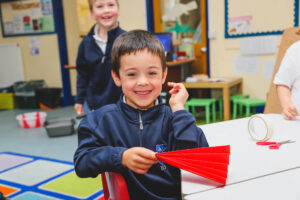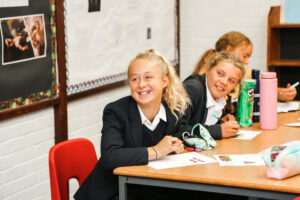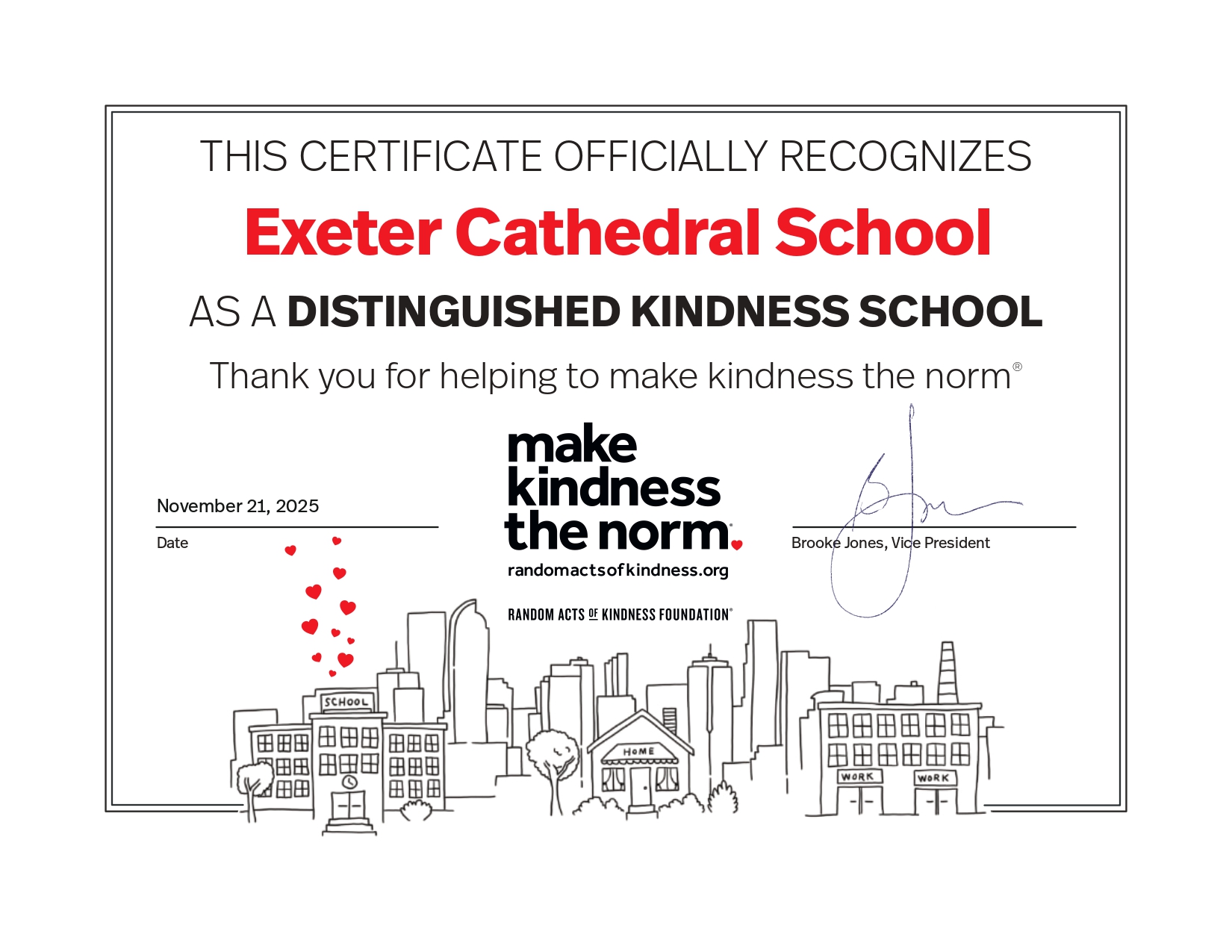The abysmal performance of the Headmaster’s table at yesterday’s terrific FECS Quiz Night has given me good cause to reflect on the importance of ‘teacher failure’. Two Featherstones, one Head of Pre-Prep, a Meteorologist, one Assistant Head Academic, and an EYFS/KS1 specialist managed between them to avoid last place by one point, and I understand that there is some on-going controversy about even that additional bonus mark. But the chance to think again about the concept of ‘teacher failure’ – going outside of one’s comfort zone and having a go at something new in front of one’s pupils, with the very real possibility of not meeting with success – has been a good one.
It is easy to think that teachers must always be in control, must never show weakness, must never expose a vulnerability or model anything other than successful behaviours. And yet – in a setting where we are coaching and training our pupils to have a growth mindset, to show resilience, to see failure as a First Attempt in Learning – and if what we are in the business of is instilling and promoting positive habits, key skills and a sense of perspective through the development of character – then it surely makes sense that we should feel secure enough to model these habits to the pupils that we teach, even if that means getting things wrong, confessing that we don’t know something, or mucking something up. Certainly it was abundantly clear from our team’s score in the Geography round last night that there is plenty that we still have to learn….
Thinking about our response to failure, the importance of grit and resilience, and the development of character that we strive for, I was reminded of an article that I wrote about a year ago, and which I thought I would include (with some up-to-date additions and amendments) in this week’s HM’s Blog.
‘We cannot live life well or create a good society apart from acquiring and practising virtue’: Aristotle
Dennis Silk, celebrated former Warden of Radley College and sometime President of the MCC, says in the BBC documentary ‘Public School’ that a school’s main purpose is to help its pupils acquire ‘the right habits for life’. That was in 1979. The best part of 40 years later, most of modern educational thinking seems to be agreeing with him. Most months there’s something in the press about the increased importance that employers are placing on ‘soft skills’ (terminology which, with one bullishly ill-advised adjective, undermines and undervalues the very point these articles – and employers – are making); Dr Anthony Seldon, the iconic recently-retired Headmaster of Wellington College, slowly but surely made the headlines with the rolling-out of his Wellbeing lessons, his insistence on ‘service’, and his school’s sector-leading focus on Character, Grit, and Resilience; and the founding of the UK-wide Jubilee Centre for Character and Virtues (2012) and the rapid rise in in-house initiatives across the independent sector such as Failure Week (Wimbledon High School), Silent Retreat (senior pupils at Blundell’s), and the introduction of our own Upper Years ‘Wellbeing Agenda’ (Emotional Wellbeing, Digital Wellbeing, Health and Wellbeing), our increasing opportunities for Mindfulness and Meditation (spearheaded by our Worship Coordinator – and Paws-B-trained coach – Mrs Fitzpatrick), as well as our weekly periods of stillness and reflection in the Cathedral, all suggest pretty strongly that we are, as a nation and as a sector, becoming slightly less hesitant to agree with Professor James Arthur’s assertion (2013) that ‘character matters more than attainment’.
It matters to me very much that children be recognized and rewarded not just for what they achieve, but for the way in which they go about trying to achieve it. In other words: attainment matters, but character matters more. In other words: those ‘soft’ skills are the ones that count the most. In other words: those ‘habits for life’ are what we really prize. The development and promotion of good character, the up-holding and embedding of core values, the modelling and nurturing of the right habits, and the acquiring and practising of key skills are at the heart of what we try to do as a staff team at ECS.
There is a great deal of talk across the educational sectors about the quasi-impossible task facing schools today: as Richard Riley (US Secretary of Education under Bill Clinton) once put it, ‘We are currently preparing students for jobs that don’t yet exist…using technologies that haven’t yet been invented…in order to solve problems we don’t even know are problems yet’. Terrific emphasis continues to be placed on the importance of STEM (Sciences, Technology, Engineering, Maths): the future is computer-based; educate children for that future.
And yet Andrew Pinsent, Research Director at the Ian Ramsey Centre for Science and Religion, University of Oxford, makes the point that from here-on-in anything that can be automated will be; anything that can be run by/done by computers will be; and so what’s left for people at that point? His answer: all the important stuff. To think on that a little longer: in a world increasingly governed by and served by machines, the ‘soft skills’ (empathy, emotional intelligence, manners, social intelligence, nuance, persuasion, kindness, subtlety of expression, interpretation of information, team work, leadership, self-reflection, self-awareness, perspective, gentleness: in short, insight) are going to be more important than ever as today’s young adults head out into the world seeking employment and meaningful relationships. Will Gompertz, the BBC’s Arts Editor, takes this to its logical conclusion and makes the case for every school being an arts school, because everything else will end up being done by computers.
There is, as is usually the case with these things, a balance to be struck. Schools must embrace the use of technology as a learning tool and recognise the importance of digital literacy in the lives and futures of pupils (our increasing use of iPads for learning and teaching, our ECS coding club, and our new Digital Wellbeing sessions show that we take that side of things seriously). But they must also be environments where ‘soft skills’ are highly-valued, modelled, promoted and prized. As I have said before during my soap-box moments, the primary role of an outstanding Prep School is to work with families to help pupils acquire the right values, habits, and skills for life.
Silk, Seldon, Pinsent, Gompertz and Featherstone (audacity fully acknowledged) may all agree on what matters most, but none of these can claim to be the first to have thought of it: I suspect that we ought to hand that one to Aristotle, too – ‘It is not unimportant, then, to acquire one sort of habit or another right from our youth; rather it is very important, indeed all important’.
James Featherstone







